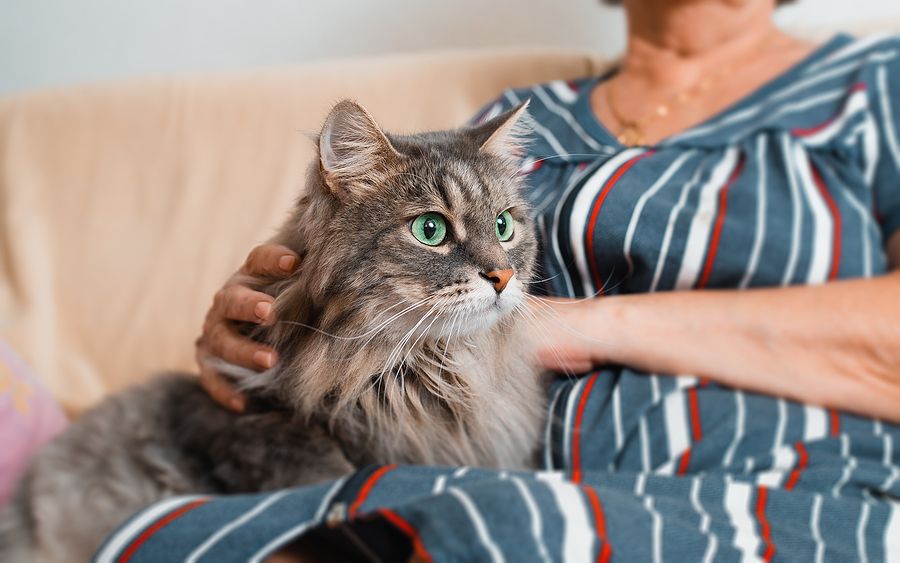Everything You Need To Know About Caring For Your Older Pet
As pets age, their health and behavior change dramatically. Taking care of an older pet requires patience, love, and understanding, but with the right approach, you can ensure your pet lives a comfortable, happy life well into its golden years.
This article will cover everything you need to know about elder pet care, including what to expect as your pet ages, how to recognize changes in behavior, and tips for managing anxiety in older dogs.

What Are the Signs of Aging in Dogs?
As dogs age, they may exhibit physical and behavioral changes that indicate they are getting older. Some of the most common signs of aging in dogs include a decline in energy levels and activity, changes in sleep patterns, a decrease in appetite, gray hair and hair loss, difficulty standing up or walking, struggles with stairs or getting up from a lying position, incontinence or loss of bladder control, and a decline in hearing and vision.
These changes can be difficult to witness, but it's essential to be aware of them and provide the necessary care and support to ensure that our furry companions are comfortable and happy in their golden years.
Why My Old Dog is Acting Strange?
As dogs age, they may experience behavioral changes that can concern their owners. Some of these changes are due to physical and mental declines that come with aging.
Cognitive decline is a common issue in aging dogs, resulting in confusion, disorientation, and changes in sleep patterns. Pain from arthritis, joint pain, or other medical problems can also impact an older dog's behavior.
Sensory loss, such as hearing or vision loss, can also disorient dogs and cause changes in behavior. In addition, medications and underlying medical conditions, like thyroid problems, cancer, or infections, contribute to changes in an older dog's behavior.
Behavioral changes in your pet mustn't be ignored; talk to a vet immediately to determine if your furry friend needs medical assistance or medication.
How to Deal with Anxiety in Older Dogs?
Aging dogs are prone to anxiety, often stemming from changes in their surroundings, the absence of a beloved companion, or changes in their daily routine. Here are six steps you can take tackle anxiety in your aging dog:
Maintain a routine: Keeping a consistent routine for meals, walks, and other activities can help reduce anxiety in older dogs.
Provide a calm and comfortable environment: Make sure your dog has a quiet, comfortable place to rest, and try to minimize changes to their environment as much as possible.
Offer mental stimulation: Mental stimulation - like puzzle toys - helps reduce anxiety and keep your dog's mind active.
Provide physical activity: Gentle exercises (slow walks) also help reduce anxiety and promote relaxation.
Consult a veterinary behaviorist: If your dog's anxiety is challenging to manage, a veterinary behaviorist can provide a comprehensive evaluation and develop a customized treatment plan.
Reduce stressors: Identify and reduce the stressors in your dog's life, for example - loud noises, unfamiliar people or animals, and sudden changes.
Elder Pet Care Tips
Caring for an aging pet requires a little extra love and attention to help keep them healthy and comfortable. Here are some helpful tips for ensuring the well-being of your furry companion:
Regular Vet Check-Ups: Preventive care is critical in maintaining your pet's health as they age, and regular visits to the veterinarian are a crucial component of this approach
Exercise: Regular exercise is vital for all dogs, especially older ones. Gentle walks or playtime can help maintain their strength and keep them active
Proper Diet: A balanced diet is crucial for all dogs, but older dogs may need a different type of food to support their changing nutritional needs
Comfort: Ensure your pet has a comfortable place to rest, such as a soft bed or blanket, to help them feel relaxed and content
Medication: If your pet suffers from chronic health problems, medication may be necessary to manage its symptoms and improve its quality of life
Elder pet care can be challenging, but with the right approach, you can ensure your pet lives a comfortable and happy life. At Forever Vets, we offer compassionate care to help you support your aging pet through every stage of life. Our personalized treatment plan gives your aging pet comfort and happiness.
Schedule an appointment with Forever Vets to discuss a personalized treatment plan and ensure your furry friend stays comfortable and relaxed in their golden years.


